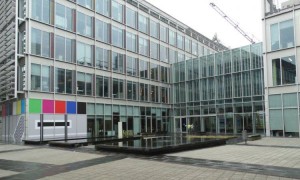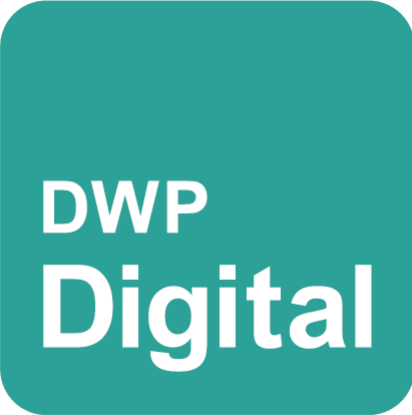
The latest round of user research for the Access to Work team takes us to the heart of the BBC at the Broadcast Centre in White City, London. The thought of visiting the BBC, for me at least, conjures up thoughts of bumping into celebrities around each corner and perhaps getting the chance to contemplate Shep’s memorial in the Blue Peter Garden.
Whilst the reality is slightly more mundane, in terms of gathering insights about how the deaf community interact with our services it proves an invaluable exercise and provides a wealth of insights.
We are here to meet a couple of BBC employees who are both profoundly deaf and also existing users of the Access to Work scheme for the provision of British Sign Language (BSL) interpreters in their day to day jobs.
Access to Work is a government programme delivered by Jobcentre Plus which provides advice and a financial grant for practical support to overcome work-related barriers due to disability. It is available to customers with a disability who are in paid employment or who are about to start a job.
Both employees work on See Hear, the BBC flagship magazine programme for the deaf and hard of hearing. The programme has been running since 1981 and has won several awards in recognition of its services to the deaf community.
I think it is fair to say that both users have, at best, mixed feelings about Access to Work. Both acknowledge that the scheme provides valuable support for the help they need in the workplace, however both are equally critical of the time it can take to process claims. The perceived “clunkiness” of the process makes life difficult for their Production Management Assistant (PMA) who liaises with DWP each time a claim is lodged. Conscious of this, we return to speak with the PMA in the near future because understanding what the employer needs from a digital service will be equally important as we take things forward.
The background duly set, I proceed to let both users talk me through their thoughts via their BSL interpreters as they work through the Access to Work prototype. I want to observe how they interact with the service and discern their user needs. The immediate insight is that the experience can be different for different levels of deafness. For example, one user has very slight hearing with the use of an aid and also has a good knowledge of English. As such he moves through the form with ease. He is also comfortable giving an email address and is also content that he is giving his consent for future correspondence via email when he checks the tick box.
The other user has BSL as her first language as she has been profoundly deaf from birth and English is not her first language. She consequently struggles with English and her interpreter has to help her with the form. Email will not be an option for her in terms of further communication. The prototype lets her appoint a third party to take calls on her behalf should further contact be required but for her this really needs to be a BSL interpreter. The insight is that we need to make this clearer in the form so we can meet this particular need. As there will be other users out there for whom BSL is their first language we will be looking to research with more of them to refine these needs and ensure our service can meet them.
All in all, a very interesting and useful day. Both users like the prototype and return to work full of enthusiasm about the strides being taken by DWP to convert Access to Work into an online service, so much so that they are preparing a See Hear blog to reflect their experience!
For us the next few weeks will see more research with both employees and employers across the spectrum of disabilities embraced by Access to Work as we move towards GDS assessment. So lots of work still to do but today feels like real progress.

4 comments
Comment by Caroline Hills posted on
Interesting that the user with BSL as her first language said email was not an option for further communication. Did she specify why? I'm guessing it's because she's not confident enough with her English as you mentioned? That's not a conclusion I'd immediately draw for BSL users so really interesting info from an accessibility perspective.
Comment by Mark Lambert posted on
Caroline, many thanks for your comments and yes, you are correct that this user’s choice was purely down to her lack of confidence with English. Not only was BSL her first language but English would not have been the written language that she grew up with. This meant that receiving e mail or taking phone calls would both have required the use of a BSL interpreter in her case. This may not be typical of BSL users but it is something that we shall continue to monitor as we further test the Access to Work prototype with users in the deaf community.
Comment by Colin Coote posted on
What about a person who lost all Hearing later in Life, so can only use STTR, when I say all, nothing left in ears at all after complete Obliteration and failed Cochlear implant'
There is a difference again between Profoundly Deaf & Totally Deaf. What is it ?
Comment by Mark Lambert posted on
Thanks for your comment. Decisions will be made not based on the name of the condition, but the effects of the condition on the person. We’ll test that the digital Access to Work claim will enable people to record the effects of their condition accurately.